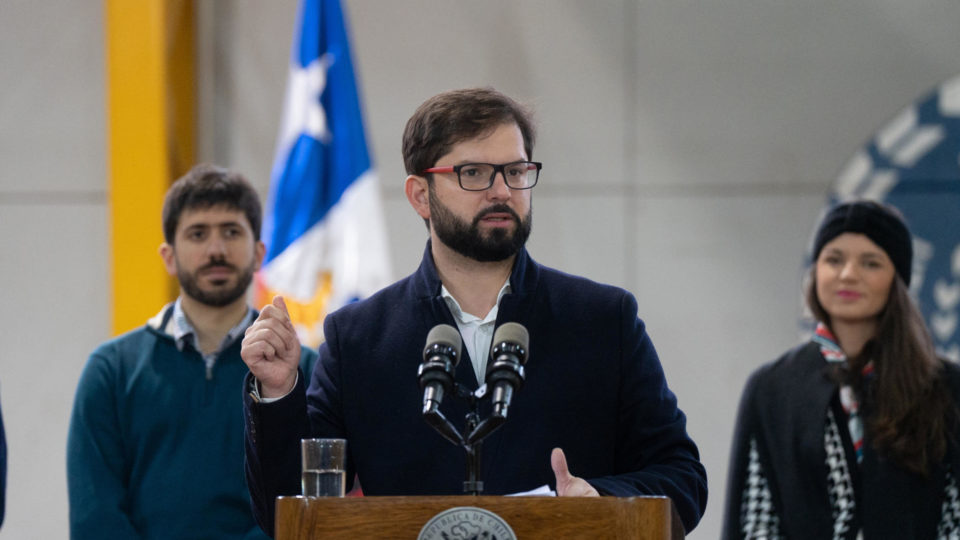Chilean President Gabriel Boric said Tuesday (9) that he would not change his government’s “direction” after the right wing’s expressive victory in last Sunday’s Constituent Council elections, which took an unexpected turn on the country’s political chessboard.
“Our government has had and will continue to have a very clear work agenda, defined by the needs of the people, by the commitments we made to the country,” he said.
Among those needs, the president listed “security and the cost of living” and “reforms that ensure greater social justice and equity, which are at the heart of social unrest.”

“That direction … is not changed by circumstances,” Boric added during the enactment of a law intended to improve repression of drug trafficking.
The right-wing Republican Party, in favor of maintaining the current Constitution and the neoliberal model established during the Pinochet dictatorship (1973-1990), won 23 of the 51 seats in the body that will draft the second proposal for the Magna Carta.
The party won in 12 of the country’s 16 regions, including leftist strongholds such as Valparaiso, gaining enough seats to have veto power.
The pro-government list, formed by Boric’s Broad Front, Communist Party, and Socialist Party, came in second, getting 16 councilors.
In contrast, the traditional right-wing bloc Chile Vamos (formed by National Renewal, UDI, and Evópoli) got 11 councilors.
The last seat went to a Mapuche activist in the quota reserved for indigenous peoples, and both the center-left and the populist Popular Party were left out of the body.
The composition now is antagonistic to the previous leftist-dominated Constituent Council.
The previous Council produced a progressive text, which included a “right” to abortion, and an indigenous justice system, and replaced the Senate with a less powerful legislative body.
The text was ultimately rejected by 62% of Chileans in last September’s referendum.
“We will continue to work firmly to unite our society and recover interpersonal trust among citizens and between citizens and their institutions,” concluded Boric.
This time, he does not plan any changes in his cabinet, unlike last year when he swapped several ministers and strengthened the moderate wing.
The 51 councilors elected on Sunday have five months to work on a bill drafted by a group of experts appointed by Congress, and that includes 12 constitutional bases previously agreed upon by the parties to avoid a proposed recasting, such as the recognition that Chile is a democratic social state governed by the rule of law with a bicameral system.
If the new right and the traditional right ally themselves, they can modify the experts’ project, a text that should be submitted to a referendum in December of this year.
With information from EFE

